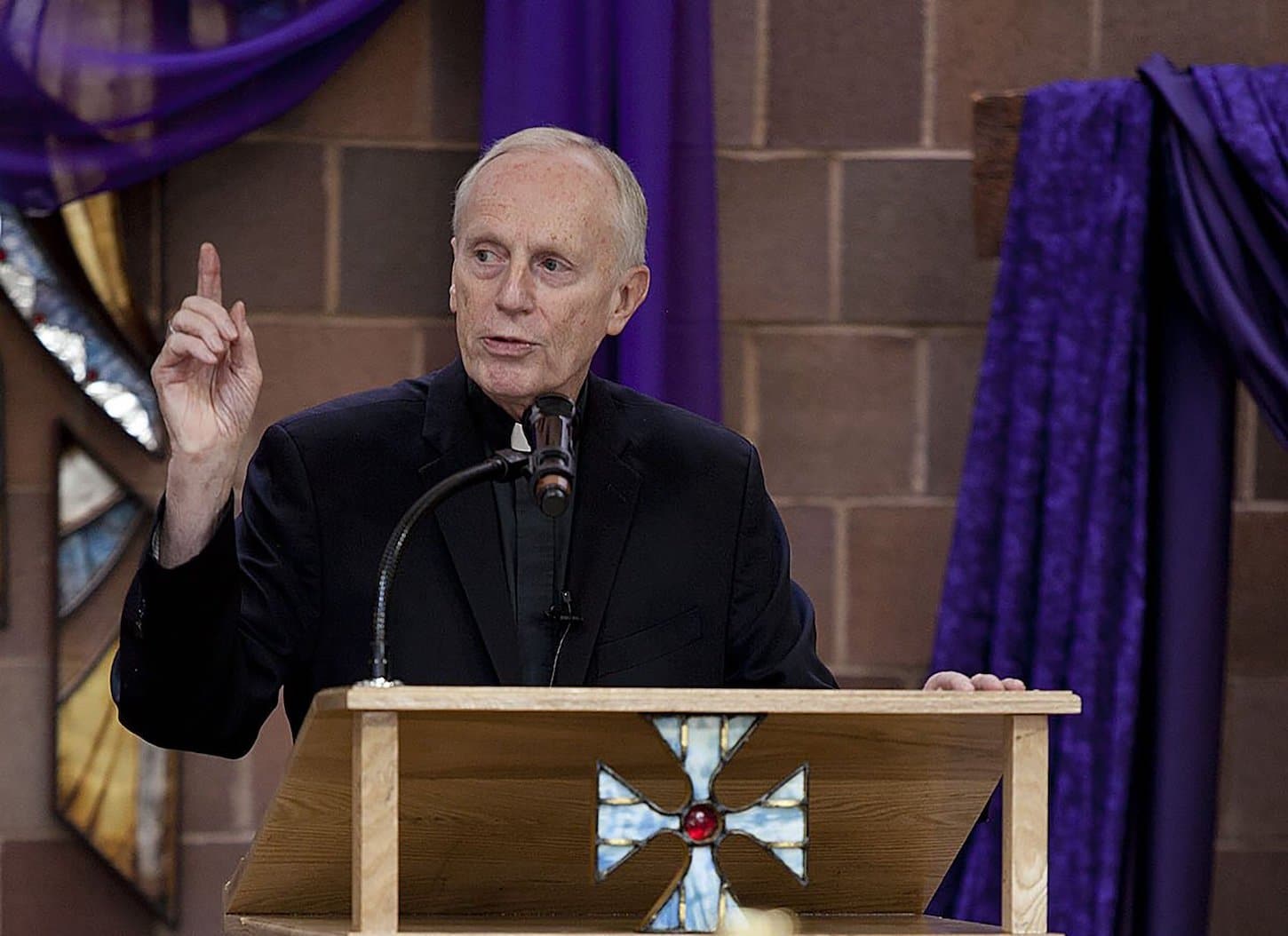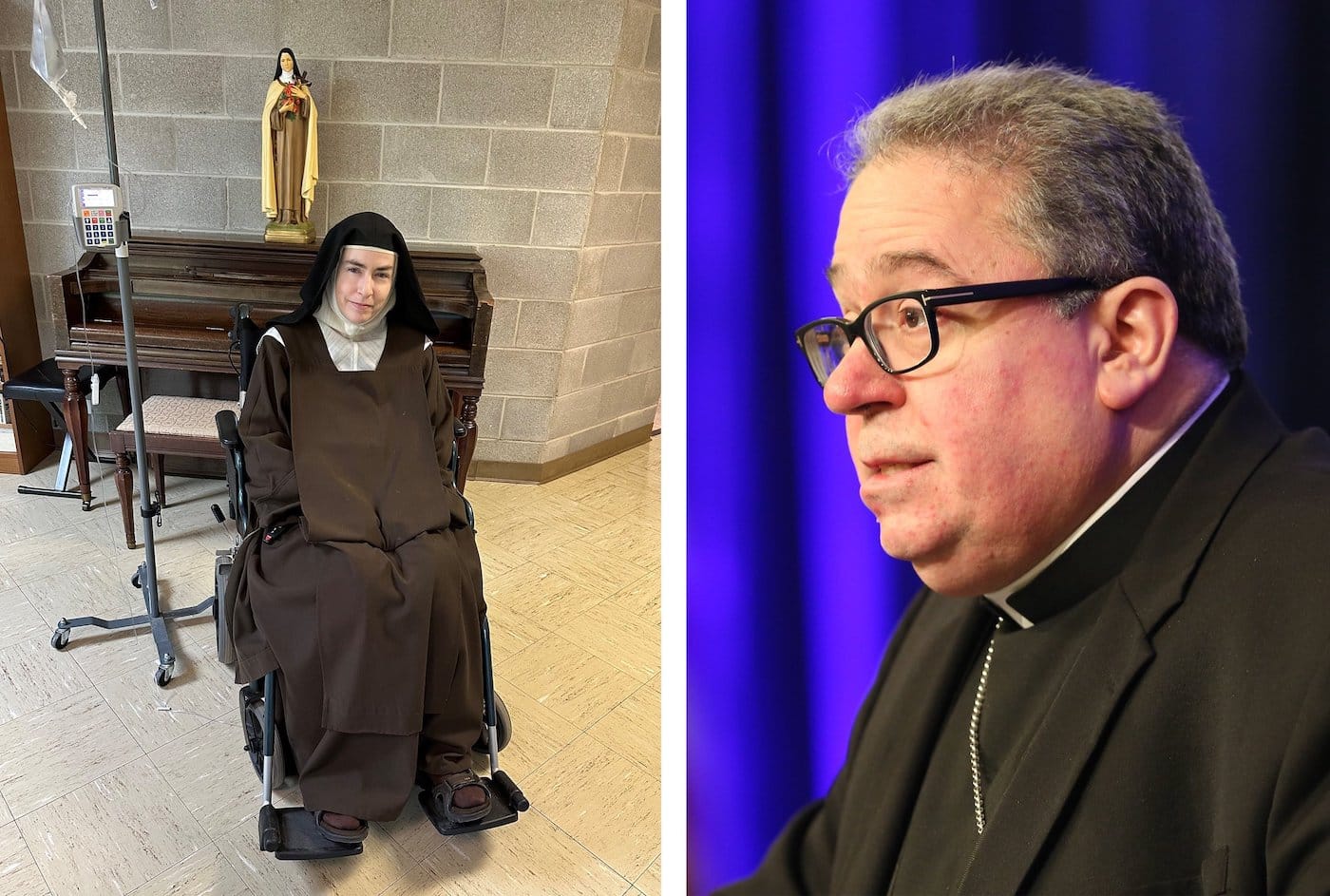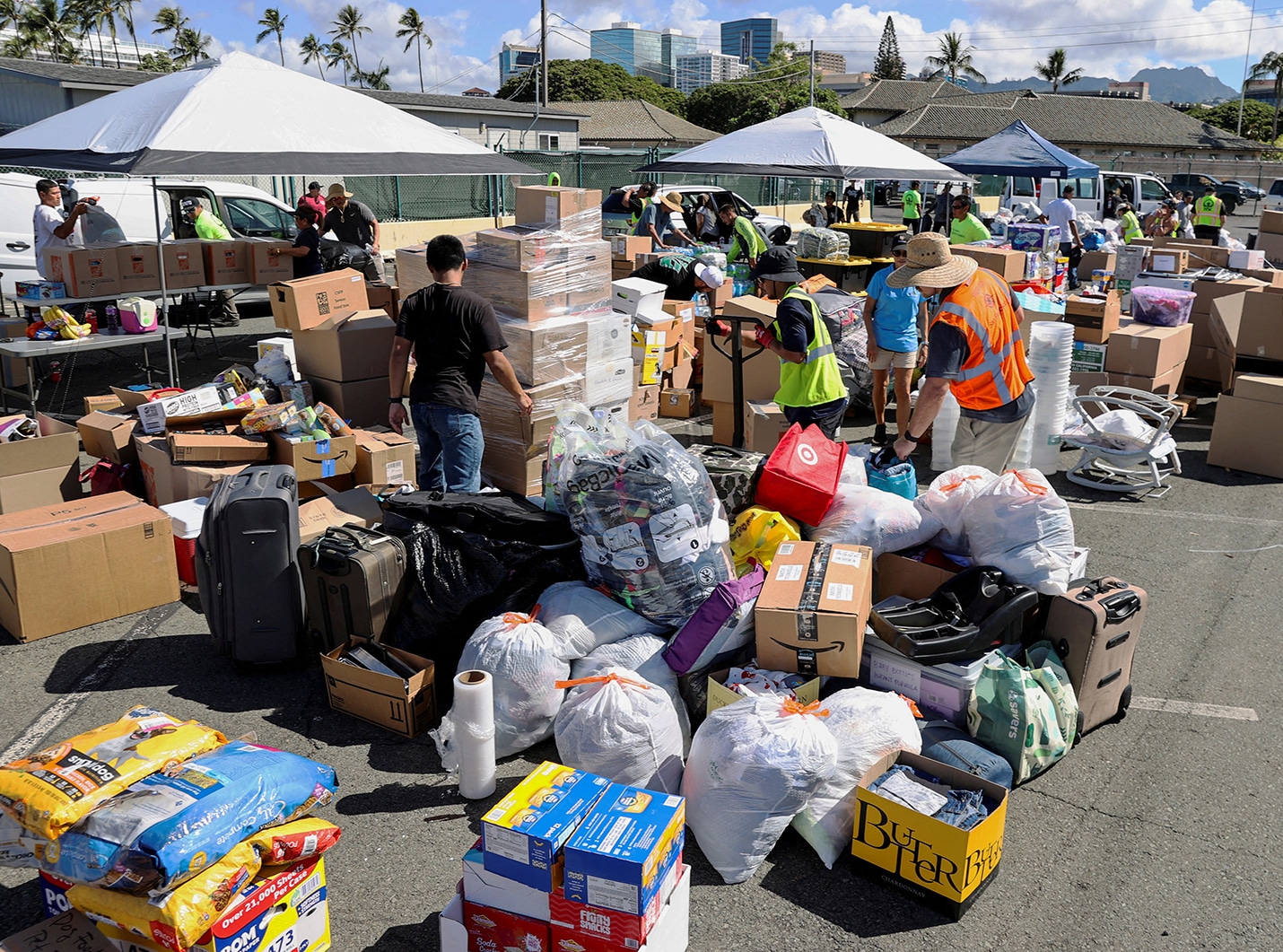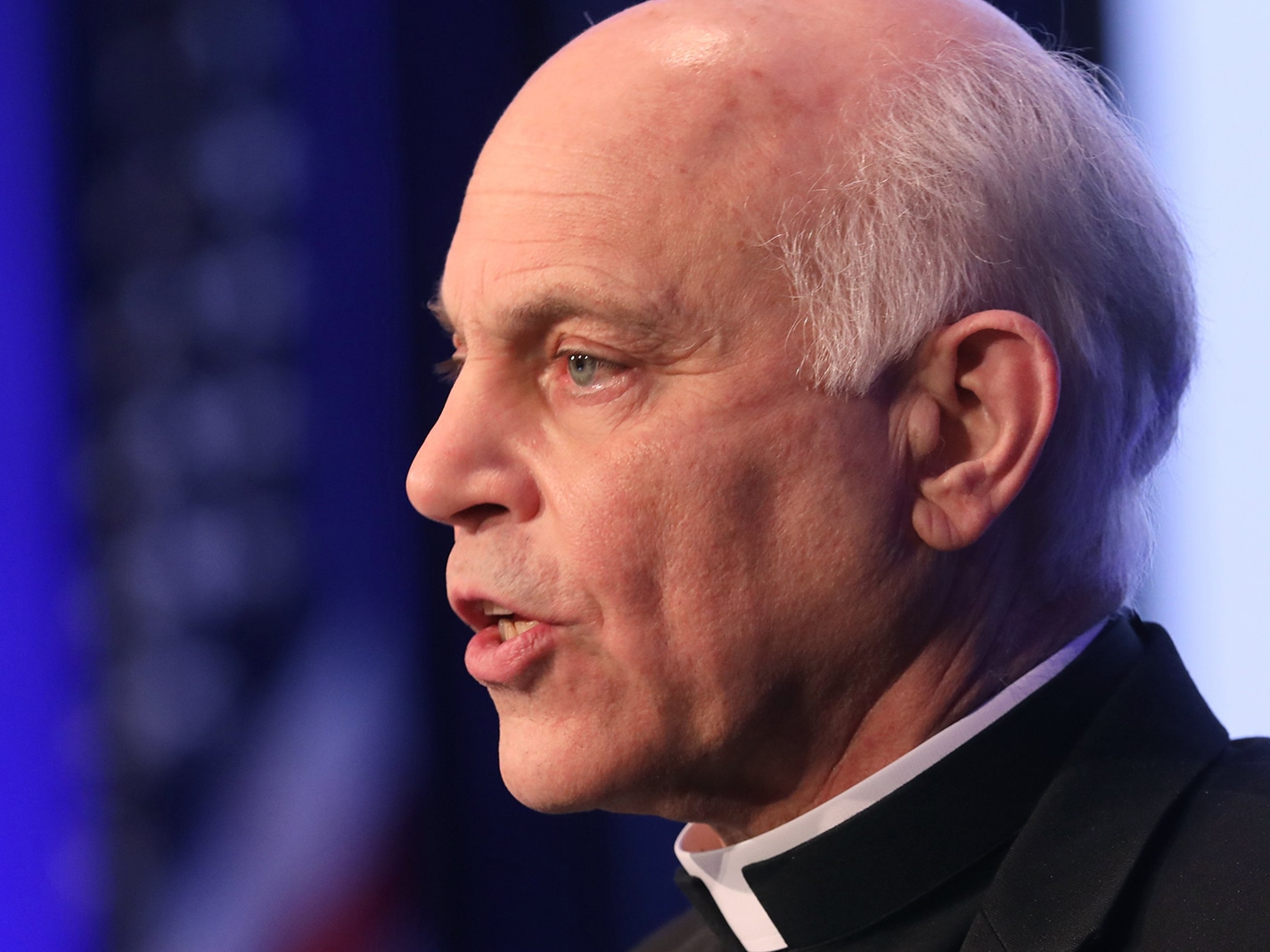(OSV News) — Retired Bishop Howard J. Hubbard of Albany died Aug. 19 at age 84 in Albany after having reportedly suffered a major stroke earlier in the week. Once the youngest bishop in the United States, he was known as a staunch advocate of the poor and those struggling with addiction, but in 2019 was relieved of his pastoral duties after accusations of sexual abuse. Earlier this month, he announced that he had been married civilly after the Vatican denied a request for laicization he made last year.
Bishop Hubbard was bishop of Albany from 1977-2014. He leaves a complicated history in the diocese, where he is still beloved by many of the faithful. He was a charismatic “street priest” who helped those in need and suffering from addiction in Albany’s South End. He made national headlines when he became bishop at the age of 38. However, in 1999, he was named in seven sexual abuse claims and admitted to not reporting a known instance of child abuse.
“The life of a priest is never about himself but for those whom he serves, to whom he is sent,” said Bishop Edward B. Scharfenberger of Albany in a statement. “As we commend our brother, Howard Hubbard, to the God of all mercy, we pray also for all those who, throughout the course of his life, as priest, bishop, and friend, were inspired and encouraged along their own journey, especially those who received the sacraments through his ministry.”
“Priests are called to sanctify, to ‘make holy,’ to lift others up to God,” continued Bishop Scharfenberg, who succeeded Bishop Hubbard in 2014. “As all priests are human, broken men, in need of redemption themselves from their own sins, we also pray for those who were in any way hurt or wounded by any priest they may have encountered. We join with everyone who can see this moment as an occasion to pray for all priests, living and deceased, and those they serve, to lift up our minds and hearts to the one God who alone knows our hearts and seeks the salvation of us all.”
Early priesthood
Born Oct. 31, 1938, in Troy, N.Y., Bishop Hubbard entered Mater Christi Minor Seminary in Albany in 1956. He continued his studies at St. Joseph’s Seminary in Dunwoodie, earning a degree in philosophy before continuing to The Catholic University of America and then to Rome, where he completed his studies for the priesthood at the Pontifical Gregorian University and was ordained Dec. 18, 1963.
During his early priesthood, then-Father Hubbard served as associate pastor of St. Joseph’s Church in Schenectady and the Cathedral of the Immaculate Conception in Albany, as well as serving as chaplain for the Kenwood Convent of the Sacred Heart in Albany.
In his early days, Bishop Hubbard — who was heavily influenced by the Second Vatican Council, which began in 1962 — was known as a “street priest” who walked the South End finding apartments for people with no place to go, collecting food donations for the hungry and driving people with addictions to detox.
He founded Providence House and Hope House, one the storefront crisis intervention center, and the other a residential recovery program for adults and teens struggling with addictions.
Hope House continues to offer high-quality treatment.
A young bishop
On Feb. 1, 1977, he was appointed as the ninth bishop of Albany by St. Paul VI, making him, at 38, the youngest bishop in the United States at that time. He was ordained to the episcopacy March 27, 1977, at Siena College in Loudonville.
In March 1977, he told The Evangelist that even though he would become bishop, he would continue to “live a rather simple lifestyle.”
“I think that the bishop has to be a man of prayer and a man of service,” he said. “I have always tried to live a rather simple lifestyle as a priest, and I would hope to continue that in my tenure of office as bishop. I think the most important thing is what’s within the heart of a person. If the person has a simplicity of lifestyle within himself, then no matter what physical circumstances in which he finds himself, that would come through.”
In 1983, he was appointed to the Vatican’s Secretariat for Non-Christians by St. John Paul II. Over the course of his episcopacy, Bishop Hubbard authored two pastoral letters — “We are His People” and “We are God’s Priestly People” — and wrote two books, “I am Bread Broken: A Spirituality for the Catechist” and “Fulfilling the Vision: Collaborative Ministry in the Parish.”
He served as president of New Yorkers Against the Death Penalty, sued to prevent an abortion clinic from opening in Albany, and led a historic Palm Sunday reconciliation service between Christians and Jews in 1986 at the cathedral. The service was believed to be the first in the world, and it included Bishop Hubbard and Rabbi Martin Silverman walking through the “Portal” sculpture at the cathedral hand-in-hand symbolizing reconciliation and friendship.
Sexual abuse allegations
In 2002, he was the only one of 284 bishops to voice opposition to the U.S. Conference of Catholic Bishops’ “zero-tolerance” policy proposal, which would remove any priest credibly accused of abuse from ministry. Bishop Hubbard said he wanted to deal with accused priests on a case-by-case basis.
In 2004, Hubbard was accused of being in sexual relationships with other men and paying a teenage boy for sex. Hubbard was cleared by a comprehensive investigation, led by former prosecutor Mary Jo White. In the 200-page report, White said she found “no credible evidence” to back up the allegations.
Bishop Hubbard submitted his letter of resignation to Pope Francis at the age of 75, as required, and the Vatican announced Feb. 11, 2014, that Pope Francis had accepted his resignation. At the time of his retirement, Bishop Hubbard’s 37 years as bishop marked the longest tenure of any bishop in the history of the diocese.
When New York’s Child Victims Act went into effect in 2019, Bishop Hubbard was named in a lawsuit accusing the bishop of allegedly sexually abusing a 16-year-old in the late 1990s. In all, Bishop Hubbard has been named in seven CVA lawsuits. Bishop Hubbard vehemently denied he abused anyone, saying in 2019, after he was named in a second lawsuit, that “I have never sexually abused anyone of any age at any time.” The crush of the more than 400 sexual abuse lawsuits eventually led the Diocese of Albany to file for Chapter 11 reorganization in March 2023.
In deposition testimony from 2021 that was made public in March 2022, Bishop Hubbard was asked why he did not report a suspected case of child sexual abuse to law enforcement as bishop, after a priest allegedly admitted to him that he had abused a child. He replied, “Because I was not a mandated reporter. I don’t think the law then or even now requires me to do it. Would I do it now? Yes. But did I do it then? No.”
Final statement
On Nov. 18, 2022, Bishop Hubbard announced that he petitioned the Vatican to be returned “to the lay state. … because of a Church policy that prohibits any priest accused of sexual abuse from functioning publicly as a priest, even if the allegations are false, as they are in my case,” Bishop Hubbard said in a statement at the time.
In a statement Aug. 1, 2023, Bishop Hubbard announced that the Vatican had denied his petition for laicization, and he had fallen in love and married in a civil ceremony. Bishop Scharfenberger said in a statement responding to the news that “the Church does not acknowledge his marriage as valid.”
On Aug. 18, Bishop Scharfenberger stated that Bishop Hubbard had been hospitalized after suffering a major stroke, and that had received anointing of the sick.
In his Aug. 1 statement, Bishop Hubbard said, “I want to express my profound gratitude to my friends and colleagues and the people of our Diocese for the love, care and concern you have shown me in my nearly 60 years of priestly service, 46 as a bishop, and for the wonderful fraternal bond I have enjoyed with my brother bishops and priests, deacons and the religious women and men who have served in our diocese, the laity and the interfaith and civic leaders with whom I was privileged to serve. … I thank you with the words of my episcopal motto, ‘Rejoice, we are God’s people.’ God bless you all.”
Mike Matvey is editor for The Evangelist, the official publication of the Diocese of Albany.







